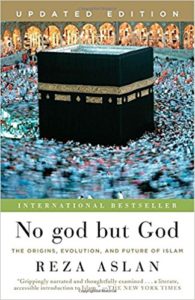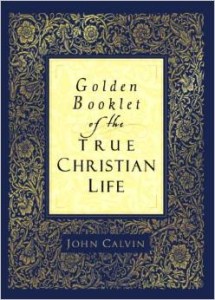 Islam rose to the forefront of the global consciousness on September 11, 2001 through the bloody actions of several self-proclaimed followers of Islam. Yet in spite of the almost constant barrage of information since then by news pundits, political leaders, and religious personalities, it seems that most people living in the United States still don’t understand the basic concepts, history, or divisions within the religion. Written four years after the 9-11 terrorist attacks by Reza Aslan, a Sufi Muslim immigrant to the USA from Iran, the book No god But God: The Origins, Evolution, and Future of Islam seeks to provide the reader with a basic understanding of Islam.[1]
Islam rose to the forefront of the global consciousness on September 11, 2001 through the bloody actions of several self-proclaimed followers of Islam. Yet in spite of the almost constant barrage of information since then by news pundits, political leaders, and religious personalities, it seems that most people living in the United States still don’t understand the basic concepts, history, or divisions within the religion. Written four years after the 9-11 terrorist attacks by Reza Aslan, a Sufi Muslim immigrant to the USA from Iran, the book No god But God: The Origins, Evolution, and Future of Islam seeks to provide the reader with a basic understanding of Islam.[1]
Using chronological time as a scaffold, Aslan focuses on telling the theological history of Islam rather than outlining the territorial spread of the religion. This focus on the theological development of Islam allows Aslan to highlight the various reformation movements within the religion. In fact, Aslan goes as far as to say that the book itself is less about the origins of Islam as much as it is “an argument for reform.”[2] Though not widely known in the United States, “Islam has been in a constant state of evolution”[3] since the very beginning. Hence the power and glory of Aslan’s book is that it informs the readers of the struggles within Islam as its religious followers try to adapt their religion to a changing world while remaining true to their traditions, scriptures, and deity.
A good example of this struggle is the ongoing debate over the role of human reason in reading and understanding the Quran. The Rationalist school of thought within Islam believes that all “theological arguments must adhere to the principles of rational thought.”[4] Hence to them, the proper way to interpret the Quran is to read it within “its historical context.”[5] This allows proponents of the Rationalist school of thought to adapt the message of the Quran to the culture of the time. The Traditional school of thought, however, holds the opposite view, claiming that “human reason, while certainly important, must nevertheless be subordinate to the Quran and the Sunna of the Prophet.”[6] This view leads to a more literal reading of the Quran that states that the Quran and its interpretation “has never changed and will never change.”[7]
This debate reminds me of the Liberal/Fundamentalist divide within Protestant Christianity in the United States. Within this divide it was the Liberals who embraced science and human logic while the Fundamentalists held to a “strong emphasis on the inerrancy and literal truth of the biblical record and the falseness of modern, skeptical, evolutionary science and philosophy.”[8] As such, it can be said that Fundamental Evangelicalism and Traditional Islam both hold to some of the same philosophical concepts.
In closing, I must admit that I thoroughly enjoyed Reza Aslan’s book No god But God: The Origins, Evolution, and Future of Islam. It gave me a greater understanding of what is happening within Islam and among the various people groups who embrace the teachings of Muhammad. As the last decade has taught us, the world is changing with Islam quickly becoming a major player on the global scene. Accordingly, the reforms within Islam have now become the reforms of all people as these reforms have the potential to shape the world’s geopolitical and cultural structures in multiple ways.
Endnotes
[1] “Reza Aslan,” Wikipedia, The Free Encyclopedia, accessed on January 1, 2018.
[2] Reza Aslan, No god But God: The Origins, Evolution, and Future of Islam (New York: Random House, 2005), xx.
[3] Reza Aslan, No god But God, 266.
[4] Reza Aslan, No god But God, 153.
[5] Reza Aslan, No god But God, 161.
[6] Reza Aslan, No god But God, 153.
[7] Reza Aslan, No god But God, 161.
[8] Roger E. Olson, The Story of Christian Theology: Twenty Centuries of Tradition and Reform (Downers Grove, Illinois: InterVarsity Press, 1999), 534.


